Purchasing commercial real estate to construct a new building, renovate an existing one, or use the property as a revenue-generating asset requires financing. Few small, mid-sized companies or investors possess the cash on hand to complete a transaction and pay for next steps out-of-pocket. That’s why commercial real estate loans are a necessary resource for building a strong economy, creating jobs, and growing personal wealth.
Before applying for a commercial real estate loan, it’s essential to be prepared. By re-imagining the loan approval process from an underwriter's perspective, business professionals can more effectively navigate the process and shorten the loan approval timeline. The following are items lenders look for when vetting commercial real estate loans.
What are Commercial Real Estate Loans?
Commercial real estate loans are borrowing options specifically designed to help purchase and renovate non-residential properties. These properties typically generate income and are primarily used for business purposes. Buildings such as shopping malls, office buildings, warehouse facilities, and manufacturing plants typically qualify as commercial.
By that same token, purchasing and developing tracts of land zoned for business generally provide investors access to commercial real estate loans. It’s also not uncommon for businesses to secure a commercial loan for the purposes of expanding a facility or investing in necessary infrastructure or equipment. These rank among the prevalent loan products property owners and investors leverage.
- Permanent Loans: Secured by collateral, these loan products involve a repayment period of five or more years, with the average hovering at 25 years. Qualified borrowers receive a lump sum and make monthly installments to repay the revenue. Permanent loans are usually the first loan used to purchase a commercial property.
- Business Term Loans: Often used to make renovations, purchase equipment, or make strategic business investments, business term loans are a class of commercial real estate loans that allow you to enjoy fixed rates and a negotiable repayment schedule.
- Bridge Loans: Business professionals secure bridge loans as a short-term solution until revenue increases, or permanent financing can be secured. With repayment terms running from six months to three years, borrowers employ them as a stop-gap measure because of their higher interest rates.
- Business Lines of Credit: Unlike lump-sum loans, a business line of credit provides qualified borrowers with access to funds on a need basis. Companies can utilize the credit to make capital improvements, purchase equipment, or pay for unexpected expenses. The benefit of a line of credit stems from the fact borrowers use only what they need.
There are also less-than-desirable loan options such as borrowing from hard money lenders. Businesses sometimes take loans from these high-interest rate outfits as a last resort when applications are denied from reputable sources. That’s why it’s essential to understand what trustworthy lenders require to process and approve commercial real estate loans.
Commercial Real Estate Loan Requirements: What do Lenders Look For?
Business leaders and investors need to know that experienced lenders are more than willing to approve commercial real estate loans. Credit unions are experienced lenders that not only provide access to these loans and other resources, but they also support local businesses of all sizes and are focused on helping their local community thrive.
Getting loan approval is not designed to be an uphill battle, and loan professionals prefer the process runs as smoothly as possible for those applying. That being said, meeting the requirements involves borrowers getting organized before sitting down with a local lender. When preparing to apply for a commercial real estate loan product, these are things to consider.

Commercial Real Estate Loans Require Good Cash Flow
Underwriters typically compare the incoming business revenue to an organization's debt and its ongoing repayment liability. Many lenders prefer a consistent net income threshold of 20 percent or higher. Commercial loan applicants are expected to produce detailed financial statements that demonstrate a reliable current and anticipated revenue stream.A lender may also delve deeper into business finances and consider options such as ways assets can be converted into available cash. This element sometimes arises when a potential borrower presents as a borderline risk, and the lenders would like to understand all the options in the event the company falters.
At Carolina Trust, we prefer to see that the cash flow (Net Operating Income (NOI)) of the property can cover the debt at 1.25X (debt service coverage ratio) or better (primary source of repayment).
NOI = (Gross Rental Income - 10% vacancy - Operating Expenses (Taxes, Insurance, HOA, Maintenance fees, etc.))
Commercial Real Estate Loans Require Adequate Credit
It may come as something of a surprise to first-time borrowers, but companies are assigned a credit rating much like the FICO scores everyday people rely on to secure mortgages, automobile loans, and credit cards.
While personal credit scores range from 300 to 850, business ratings run from zero to 100. The primary credit reporting bureaus that establish these scores include Dun & Bradstreet, Experian, and Equifax. Like impartial metrics employed in the FICO system, these are measures used to calculate a business credit score.
- Longevity: The length of time your company has been incorporated and operational affects the score. This is similar to the age of accounts metric used in FICO calculations.
- Revenue: A positive annual revenue stream typically has a good impact on scores.
- Assets: Possessing tangible assets and real estate usually increases a business credit score.
- Repayment: Responsible borrowing and repayment histories are critical to a credit score.
Lenders that work with small businesses prefer a business credit score of 75 or higher when processing a loan. But it’s not uncommon for local lenders to consider scores as part of a broader approval process. Essentially, local lenders tend to exercise some discretion when processing commercial real estate loans.
At Carolina Trust, we feel it helps greatly if the borrower has a good track record with us or elsewhere – at least 2 years of experience is preferable so there is a history/trend to analyze.
To discover how commercial real estate loans can help your business, download our free guide:
Commercial Real Estate Loans Require Adequate Personal Credit
Lenders understand the decisions made at small and mid-sized organizations generally involve a sole proprietor or small group of partners. Because critical financial decisions and the use of funds provided through a commercial real estate loan are limited to them, lenders usually review personal credit histories as well.
The FICO score of loan applicants reveals a great deal about their creditworthiness and the level of risk a lender absorbs. It’s not unusual for lenders to pull personal credit reports from Equifax, Experian, and TransUnion to gain a transparent borrowing and repayment history. Loan defaults, bankruptcy, or late monthly installments can disqualify a borrower. But a good FICO score and a responsible financial track record can also help gain loan approval.
It's important to keep in mind that potential borrowers have an opportunity to request copies of their personal and business credit reports. After carefully reviewing the information, you can improve the score by requiring reporting agencies to fix any errors or making financial changes such as paying down debt. Some credit scores can be improved in 30 days or less, and every point matters when applying for commercial real estate loans.
At Carolina Trust, personal guarantees are required as they serve as a secondary source of repayment (in the event of cash calls, etc.). Also, a preferrable credit score is 650 and above for the guarantors and a debt service coverage ratio of 1.25X or better.
Commercial Real Estate Loans Require Certain Property Characteristics
One of the characteristics that distinguish a residential loan from a commercial product involves the loan-to-value ratio. This facet measures the amount of the loan against the appraised value of the commercial property. Although some residential mortgages allow borrowers up to 100 percent of the property value, commercial real estate loans are less flexible. Ratios generally fall between 65 and 80 percent, with lower loan-to-value numbers enjoying better interest rates.
Another characteristic that differs involves business occupancy. A lender may require a business to control 51 percent or more of the square footage to approve a loan.
At Carolina Trust, we like to be transparent with our business members.
- On Purchases, the maximum loan to value ratio is 80% of the purchase price or appraised value, whichever is less. Hotel property maximum loan to value ratio is 70%.
- On Refinances, the loan to value maximum is 80% of the appraised value.
- With commercial or residential investment properties, 100% of the property should be leased and we request copies of the rent rolls and leases.
How to Find the Right Commercial Real Estate Lender
Making advanced preparation to meet with a local lending professional helps streamline the process for a business to apply for a commercial real estate loan. Prior to applying, make sure to take the time to review your business credit scores and stabilize income and expenses prior to submitting your application.
At Carolina Trust Federal Credit Union, we know that sometimes, you need a little extra money to maintain and grow your business, and we get it. Whatever it may be, don’t worry— we’ve got a loan for that.




